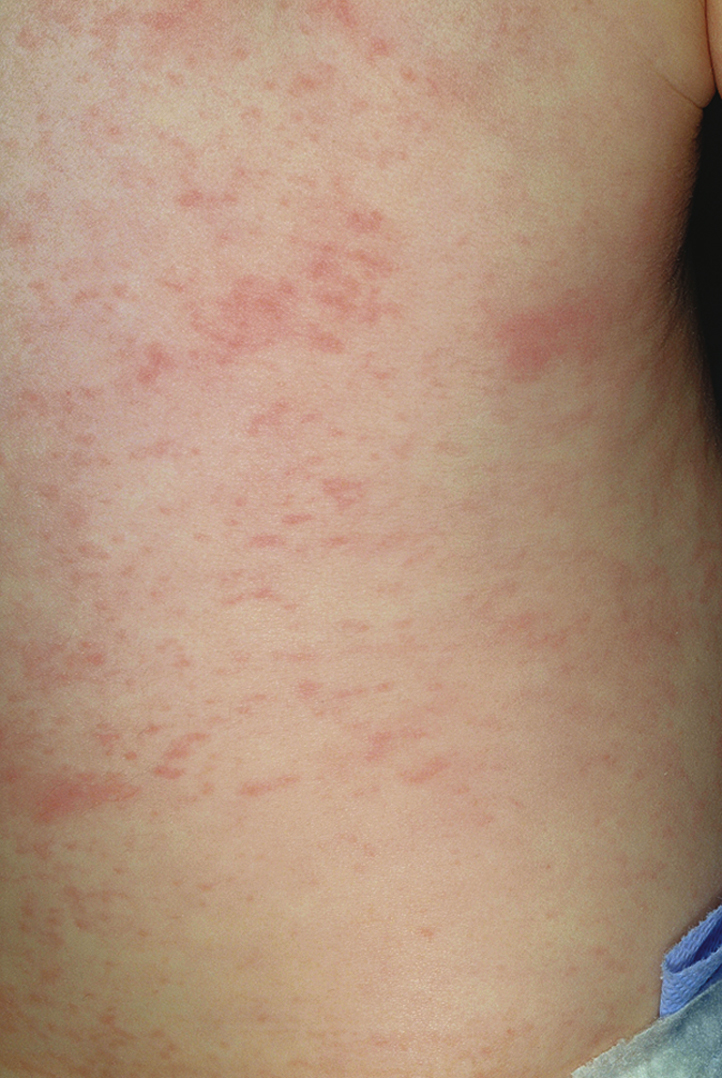roseola infantum, a benign viral endemic illness of infants and young children, caused by human herpesvirus 6 (of which there are two strains, A and B) and possibly by herpesvirus 7. It is characterized by abrupt, high, sustained or spiking fever, mild pharyngitis, and lymph node enlargement. Febrile seizures may occur. After 4 or 5 days the fever suddenly drops to normal, and a faint, pink, maculopapular rash appears on the neck, trunk, and thighs. The rash may last a few hours to 2 days. Diagnosis is based on high fever and the rash. Sequelae may occur as a result of the seizures. There is no specific therapy or vaccine. Acetaminophen is often used to try to control fever. Also called exanthema subitum, sixth disease, Zahorsky’s disease.

